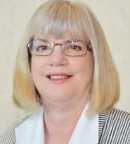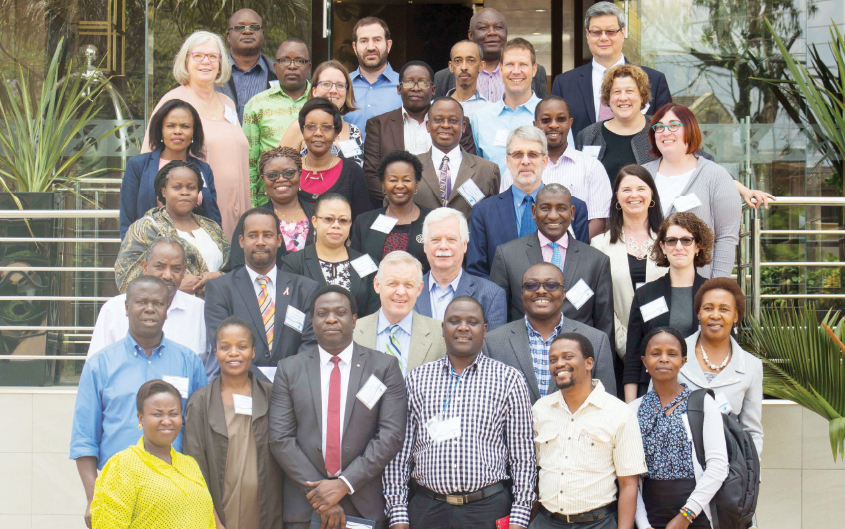Cancer care in Sub-Saharan Africa, as in other low-resource settings, can be a challenge: The right medications and equipment may be in short supply, maintaining equipment can be a problem, basic chemotherapy drugs may be unaffordable, and patients may not see doctors until the cancer is advanced.
Now, oncologists from the African Cancer Coalition and the National Comprehensive Cancer Network® (NCCN®) are working together, and with other major groups, to improve this scenario. The initiatives include a set of NCCN Clinical Practice Guidelines in Oncology (NCCN Guidelines®) adapted for the region. In addition, three interlocking projects are underway to increase access both to the guidelines and basic chemotherapy drugs.
Oncologists from the African Cancer Coalition presented the NCCN Harmonized GuidelinesTM for Sub-Saharan Africa, version 1.2017 (https://www.nccn.org/harmonized/default.aspx) to a packed conference hall at the 2017 African Organisation for Research and Training in Cancer (AORTIC) International Conference on Cancer in Africa in Kigali, Rwanda. “The whole initiative was greeted with enthusiasm,” said Robert W. Carlson, MD, NCCN’s Chief Executive Officer, who presented the collaboration’s plans for access and updates to the new guidelines.
Harmonized Guidelines
One of the first steps in the adaptation process was a meeting in April 2017 in Nairobi, Kenya, where several NCCN panel chairs and staff met with oncologists, health ministry representatives, and other experts from the African Cancer Coalition. Together they went over the U.S. guidelines for cervical, breast, and prostate cancers; B-cell lymphomas; chronic lymphocytic leukemia/small lymphocytic lymphoma; and Kaposi sarcoma, as well as those for palliative care and adult cancer pain.

The ongoing initiatives have the potential to transform the quality of cancer care in Africa.— Robert W. Carlson, MD
Tweet this quote
The American and African experts met again 5 months later, this time in Kampala, Uganda, to go over the draft adaptations. There they discussed more modifications, made changes to the NCCN algorithms, and settled on final details.
The adapted algorithms include three levels of recommendations, tailored to the resources available. Recommendations in black text refer to the generally available standard of care; those in gray text present highly advanced/optimal care “that may be costly, technically challenging, and/or have a lesser impact on oncologic outcome”; and blue text offers regional options that may be considered when availability precludes the general standard of care.
This is not the first time NCCN has worked with oncologists from other countries to tailor guidelines to local resources. Currently, there are adaptations for countries in Europe, Asia, Latin America, the Middle East, and North Africa.
In the Sub-Saharan initiative, the adapted guidelines are the basis for related projects. Carried out through collaborations involving the American Cancer Society (ACS), the IBM Health Corps, and the Clinton Health Access Initiative, the projects have produced interactive, online access to the guidelines; an online tool to forecast a country’s annual needs for drugs, based on the guidelines; and pricing agreements with drug companies based on these forecasts.
New Online Tools
In the first of these initiatives, IBM Health Corps, a global pro bono program, used IBM’s Watson technology to create a tool that streamlines access to the new guidelines’ treatment protocols and options. The tool allows clinicians to enter information about an individual patient, such as the type of cancer, stage, as well as pathologic and surgical findings. The program then responds with treatment recommendations based on the NCCN algorithms.
IBM Health Corps has also created another online tool, one that uses the guidelines to improve forecasting of the type and quantity of drugs a country needs annually. Called ChemoQuant, it allows the user to input the type of cancer; the relevant NCCN Guidelines; and factors such as the prevalence in the country of the stages, surgical findings, and biomarkers for that cancer. With this information, the software calculates the quantities of chemotherapy drugs required for a year. Users can then select their preferred providers and obtain price estimates.
ChemoQuant is an integral part of the initiative by the ACS and the Clinton Health Access Initiative that has led to pricing agreements with two drug companies.
Market-Access Agreements
One of the barriers to cancer care in Sub-Saharan Africa can be characterized as “market inefficiency.” As the IBM Health Corps website (https://www.ibmhealthcorps.org/projects/ibm-health-corps-and-american-cancer-society) explains, “chemotherapy manufacturers believe there isn’t enough demand in these markets to serve them, leaving the markets to a network of middlemen, which results in overpriced cancer drugs—often of poor quality—and a sheer lack of the right drugs on pharmacies’ shelves.”
Accurate forecasting, made possible by ChemoQuant, is helping to overcome this problem. So far, the Clinton Health Access Initiative, with technical assistance and funding from the ACS, has negotiated pricing agreements, based on these forecasts, with Pfizer and Cipla. The agreements cover 16 basic chemotherapy drugs for 6 countries in the region, giving them access to high-quality medicines while reducing the burden on health ministries’ budgets.
Next Steps
The collaboration between American and African oncologists has been exciting and rewarding, and it will continue, said Joan McClure, MS, NCCN’s Senior Vice President of Clinical Information and Publications.

The collaboration between American and African oncologists has been exciting and rewarding, and it will continue.— Joan McClure, MS
Tweet this quote
Sub-Saharan guidelines for five additional cancers will be developed in early 2018. They will include colon, rectal, esophageal, gastric, and head and neck (specifically lip and oral cavity) cancers. Antiemesis guidelines and general wellness recommendations for survivors are also on the groups’ agenda.
The ACS and Clinton Health Access Initiative, in a statement, say they plan to continue working together to pursue additional market-access collaborations.
The ongoing initiatives have the potential to transform the quality of cancer care in Africa, said Dr. Carlson in an interview. “I have been inspired by what oncologists in Africa are trying to do,” he added. “I’m so glad to be part of it.” ■
DISCLOSURE: Dr. Carlson and Ms. McClure reported no conflicts of interest.

Attendees at the 2017 AORTIC International Conference on Cancer in Africa in Kigali, Rwanda. Photo by Meg O'Brien.




